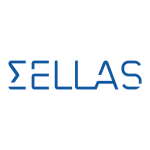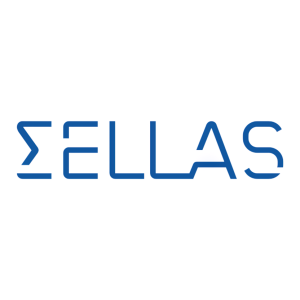Welcome to our dedicated page for Sellas Life Sciences Group news (Ticker: SLS), a resource for investors and traders seeking the latest updates and insights on Sellas Life Sciences Group stock.
SELLAS Life Sciences Group Inc (SLS) is a clinical-stage biopharmaceutical company advancing novel therapies through strategic oncology research and development. This news hub provides investors and medical professionals with timely updates on clinical trial progress, regulatory milestones, and therapeutic innovations.
Access consolidated information about the company’s lead candidates: galinpepimut-S (GPS) for WT1-expressing cancers, and SLS009, a CDK9 inhibitor targeting hematologic malignancies. Stay informed about Phase 3 trial developments, partnership announcements, and scientific presentations.
Key updates include treatment efficacy data, trial design modifications, regulatory designations (Orphan Drug/Rare Pediatric Disease), and biomarker research advancements. All content undergoes rigorous verification to ensure accuracy and compliance with financial disclosure standards.
Bookmark this page for streamlined access to SELLAS’ latest developments in precision oncology. Combine our updates with SEC filings and peer-reviewed publications for comprehensive analysis of the company’s therapeutic pipeline and market position.
SELLAS Life Sciences Group (NASDAQ: SLS) has presented breakthrough preclinical data for SLS009 in treating TP53 mutated Acute Myeloid Leukemia (AML) at the 2025 AACR Conference. The study shows that SLS009, a selective CDK9 inhibitor, reduced TP53-mutated leukemia cells by up to 97% in combination with azacitidine-venetoclax, and 80% as monotherapy.
In ongoing Phase 2 trials, patients receiving 30mg of SLS009 BIW achieved a median overall survival of 8.8 months, significantly exceeding the historical benchmark of 2.5 months. Response rates were notable across various mutations: 67% for ASXL1, 60% for RUNX1, and 33% for TP53.
SELLAS Life Sciences Group (NASDAQ: SLS) has announced its upcoming presentation at the 2025 American Society of Clinical Oncology (ASCO) Annual Meeting in Chicago, scheduled for May 30-June 3, 2025. The presentation will showcase preclinical efficacy data of SLS009 (tambiciclib) in ASXL1 mutated colorectal cancer.
The poster presentation, scheduled for June 2, 2025 (1:30 PM-4:30 PM CDT), will be displayed in Hall A under abstract #3121. The full abstract will be released on ASCO's website on May 22, 2025. Currently, SLS009 is undergoing a Phase 2 clinical trial evaluating its safety and efficacy in combination with venetoclax and azacitidine for AML patients with ASXL1 mutations.
SELLAS Life Sciences Group (NASDAQ: SLS) has announced positive results from Cohort 3 of its Phase 2 trial of SLS009 (tambiciclib) in relapsed/refractory acute myeloid leukemia (r/r AML). The trial showed remarkable survival benefits with a median Overall Survival (mOS) of 8.8 months in patients relapsed or refractory to venetoclax-based regimens, significantly exceeding the historical benchmark of 2.5 months.
The study enrolled 14 r/r AML patients, with 71% having AML-MRC. Key findings include an Overall Response Rate (ORR) of 67% in AML-MRC patients and 46% in all evaluable patients, surpassing the targeted 20% ORR. Notable response rates were observed across different genetic mutations: 67% in ASXL1, 60% in RUNX1, and 33% in TP53 patients.
The trial continues with expansion cohorts 4 and 5, focusing on AML-MRC patients with various mutations. Full data and FDA regulatory path feedback are expected in 1H 2025.
SELLAS Life Sciences Group (NASDAQ: SLS) reported its full year 2024 financial results and corporate updates. The company announced positive interim analysis results for its Phase 3 REGAL trial of Galinpepimut-S (GPS) in Acute Myeloid Leukemia, with final analysis expected in 2025.
Key highlights include:
- Phase 2 trial of SLS009 showed 56% overall response rate in AML patients with myelodysplasia-related changes
- Raised $25 million in gross proceeds through a registered direct offering in January 2025
- R&D expenses decreased to $19.1 million from $24.0 million in 2023
- G&A expenses reduced to $12.4 million from $13.9 million in 2023
- Net loss of $30.9 million ($0.50 per share) compared to $37.3 million ($1.34 per share) in 2023
- Cash position of $13.9 million as of December 31, 2024
SELLAS Life Sciences Group (NASDAQ: SLS) announced positive results from a Phase 2a trial of SLS009 (tambiciclib) combined with zanubrutinib in relapsed/refractory Diffuse Large B-Cell Lymphoma (r/r DLBCL). The trial, conducted by GenFleet Therapeutics in China, showed a 67% overall response rate, more than double that of zanubrutinib alone.
Among the 9 enrolled patients, one achieved complete response, while three had partial responses with target lesion shrinkages of 89%, 78%, and 56%. After a median follow-up of 4.6 months, 67% of patients remained alive. In the non-GCB DLBCL subgroup, the disease control rate reached 83%. Grade ≥ 3 adverse events were reported in 55.6% of patients, comparable to zanubrutinib's safety profile. Notably, genetic analysis revealed the complete response patient had MYC amplification and TP53 mutations, suggesting SLS009 could potentially overcome TP53-mutated cancer drug resistance.
SELLAS Life Sciences Group (NASDAQ: SLS) has announced a $25 million registered direct offering priced at-the-market. The company will sell 19,685,040 shares of common stock (or equivalents) and warrants at a combined price of $1.27 per share. The warrants, exercisable at $1.20 per share, will be immediately available and expire in 5 years.
The offering, expected to close around January 29, 2025, is being led by A.G.P./Alliance Global Partners with Maxim Group as co-placement agent. The net proceeds will be used for working capital and general corporate purposes, including potential acquisitions. The offering is being made through an effective shelf registration statement on Form S-3.
SELLAS Life Sciences (NASDAQ: SLS) announced positive interim analysis results for its Phase 3 REGAL trial of GPS in Acute Myeloid Leukemia (AML). The Independent Data Monitoring Committee (IDMC) recommended trial continuation without modifications after reviewing 60 death events. Key findings include:
- Less than 50% of enrolled patients deceased after 13.5 months median follow-up, suggesting survival over 13.5 months versus historical 6 months with conventional therapy
- 80% of randomly selected GPS patients showed specific T-Cell immune response, surpassing previous Phase 2 results
- Final analysis planned upon reaching 80 death events, expected this year
The trial evaluates GPS in AML patients who achieved complete remission following second-line salvage therapy. No drug has been approved specifically for maintenance of remission in AML patients in CR2. The company is preparing for Biologics License Application (BLA) submission.
SELLAS Life Sciences Group (NASDAQ: SLS) outlined key business objectives for 2025, highlighting two major upcoming milestones. The company expects an interim analysis of its Phase 3 REGAL study by an Independent Data Monitoring Committee in January 2025, which will determine whether to stop the trial early for efficacy, stop for futility, or continue without modification.
Additionally, full topline Phase 2 data for SLS009 (tambiciclib) in Acute Myeloid Leukemia (AML) and FDA regulatory review are expected in 1H 2025. The company reported positive 2024 results for SLS009, with median overall survival exceeding 7.7 months compared to historical 2.5 months, and a 56% Overall Response Rate in AML-MRC patients. The drug received multiple regulatory designations, including FDA Fast Track Designation for AML and EMA orphan drug designation for AML and peripheral T-cell lymphoma.
SELLAS Life Sciences Group (NASDAQ: SLS), a late-stage clinical biopharmaceutical company specializing in cancer therapy development, has announced a corporate update call scheduled for Wednesday, January 8, 2025, at 9:00 a.m. Eastern Time.
The call will feature Angelos Stergiou, MD, ScD h.c., President and CEO of SELLAS, who will present the company's 2025 outlook. He will be joined by Dr. Yair Levy, Director of Hematologic Malignancies at the Baylor University Medical Center and member of the REGAL Steering Committee.
The presentation will be accessible via webcast under the title '2025 Business Outlook'.
SELLAS Life Sciences Group (NASDAQ: SLS) announced reaching a critical milestone in its Phase 3 REGAL clinical trial of galinpepimut-S (GPS) for acute myeloid leukemia (AML). The study has achieved its pre-specified threshold of 60 events (deaths), triggering an interim analysis by the Independent Data Monitoring Committee (IDMC).
The IDMC will conduct a comprehensive review of the REGAL data in January 2025, assessing the efficacy, futility, and safety of GPS as a potential new treatment option for AML patients. The analysis represents a significant step in SELLAS's mission to develop novel cancer therapies.


